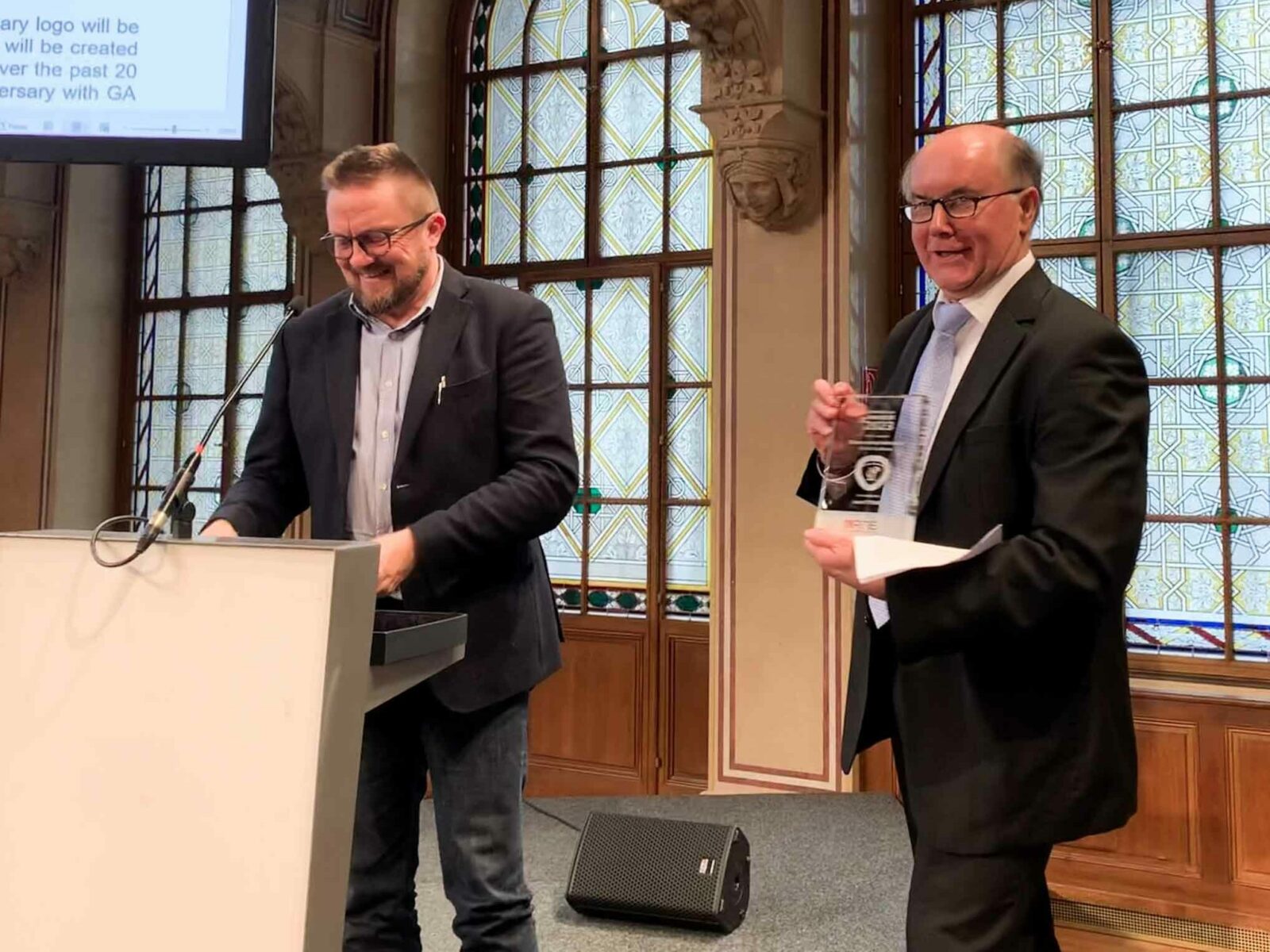I often had the European railway map in my mind, with trains scurrying around like ants. After about ten years, that vision became a reality.
Josef Stahl (RNE), RNE Award Winner 2023.
At RNE, we recognise that exceptional contributions deserve exceptional recognition. We proudly highlight individuals who dedicate their expertise and passion to advancing European train traffic. To acknowledge and appreciate their extraordinary contributions to our work, in 2022 we introduced the RNE Award.
Who is RNE Award Winner 2023 Josef Stahl?
Josef Stahl (RNE) received the RNE Award 2023 for his extraordinary contributions to RNE’s Train Information System (TIS). Over the last 15 years, Josef contributed to developing a solid IT Application to support the need for international train management and real-time data.
Additionally, he chaired the Telematics Expert Group Operation (TEG O), improving the TAF/TAP TSI schema for data exchange across Europe.

TIS Insights from Josef Stahl
Josef you are one of the last year’s RNE Award Winners. Congratulations again!
You received the award in recognition of your outstanding contributions.
RNE: Could you walk us through your key activities and milestones, highlighting the most notable challenges and successes you encountered?
Josef Stahl: The journey towards project completion was not always easy. Since joining RNE in 2008, I faced various challenges but received immense support from my management and colleagues.
The biggest challenge was to convince the rail sector that sharing data is not a devil’s bargain per se, but an advantage for all cooperating companies.
By sharing data, logistical transport chains can be optimised, leading to resource savings and increasing competitiveness.
We won over a freight market leader as an interface candidate for TIS, which boosted the application significantly. Many companies realized the benefits of TIS, such as reducing the complexity of data collection and distribution while saving costs. Initially, data errors were discovered, but with strong cooperation from infrastructure operators, these were minimized. The TAF TSI further streamlined data structuring and distribution.
RNE: Josef, how challenging was it to unite railway experts from across Europe and motivate them to work towards a common goal?
Josef Stahl: Uniting various stakeholders requires belief in your product, persuasion over pressure, and building a shared vision. The open access regulation for the freight sector and support from the European Commission helped. Patience and resilience were crucial. Listening to partners and taking them seriously is vital. A European project with numerous partners is more of a marathon than a sprint. With the support of my superiors and colleagues, the project continued to grow.
RNE: Could you identify a few factors that have helped TIS to become the well-known, widely used, and accepted application within the European railway sector?
Josef Stahl: To succeed in business, it’s crucial to demonstrate understanding of the business and reliability as a partner, doing everything possible to meet users’ needs and build trust.
Listening to and anticipating users’ requirements is vital to ensure they feel they have the best product for their needs.
Staying ahead of customer demands helps maintain this trust. We’ve always assured our partners that we can help them meet future challenges.
As a small company like RNE, with a guaranteed budget and flat hierarchies, we can quickly respond to and implement customer requests.
Our core message is that we offer and maintain a uniform standard across Europe, reducing or eliminating costly interfaces.
RNE: How do you envision the future of TIS evolving over the next 10 years?
Josef Stahl: Predicting the future is challenging. However, I believe TIS will establish itself as a prominent brand in the railway industry. New applications and artificial intelligence algorithms will revolutionize the sector. I hope TIS will embrace these innovations to stay relevant. I am confident the TIS team is prepared to adapt and maintain its esteemed position.
RNE: Reflecting on your long and successful career, what do you consider to be your most significant legacy?
Josef Stahl: I don’t think in these categories. Let others be the judge of that. As already mentioned, things change so rapidly that what is considered state-of-the-art today might be seen as outdated tomorrow.
The TIS application will and must continue to evolve, and only time will tell which of the initial ideas endure and remain relevant, even if in an optimised form.
I was simply focused on doing my job. With each new Infrastructure Manager (IM) or Railway Undertaking (RU) that we integrated into the TIS application, my interest grew in pursuing the next one. It wasn’t quite an addiction, but it sometimes felt like one.
I often had the European railway map in my mind, with trains scurrying around like ants. After about ten years, that vision became a reality.
I still feel a sense of awe when I see a freight train pass by while I’m waiting at a station. You could certainly label me as a railway enthusiast – perhaps even a bit of a railroad addict.
For more detailed information about the RNE Award and previous winners, please visit www.rne.eu/rne-awards.